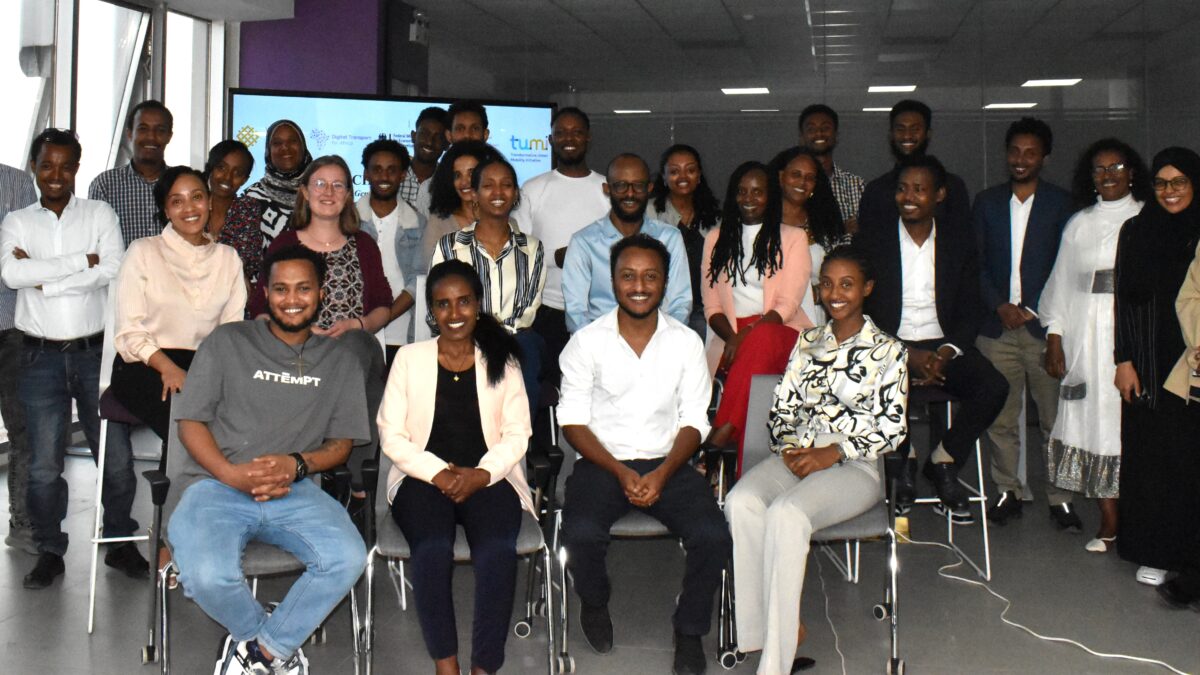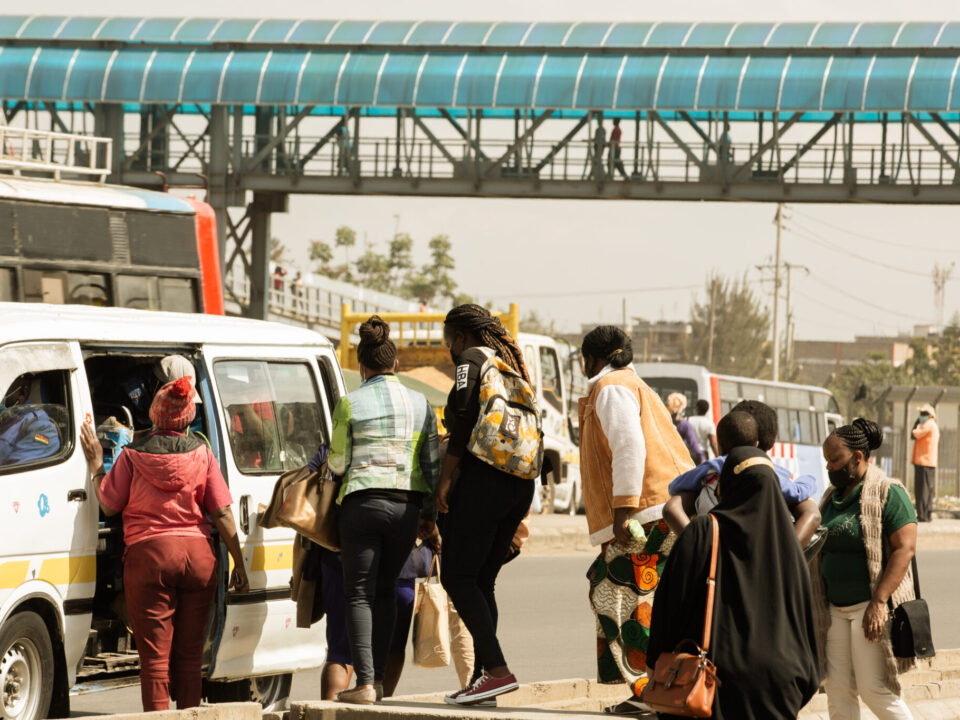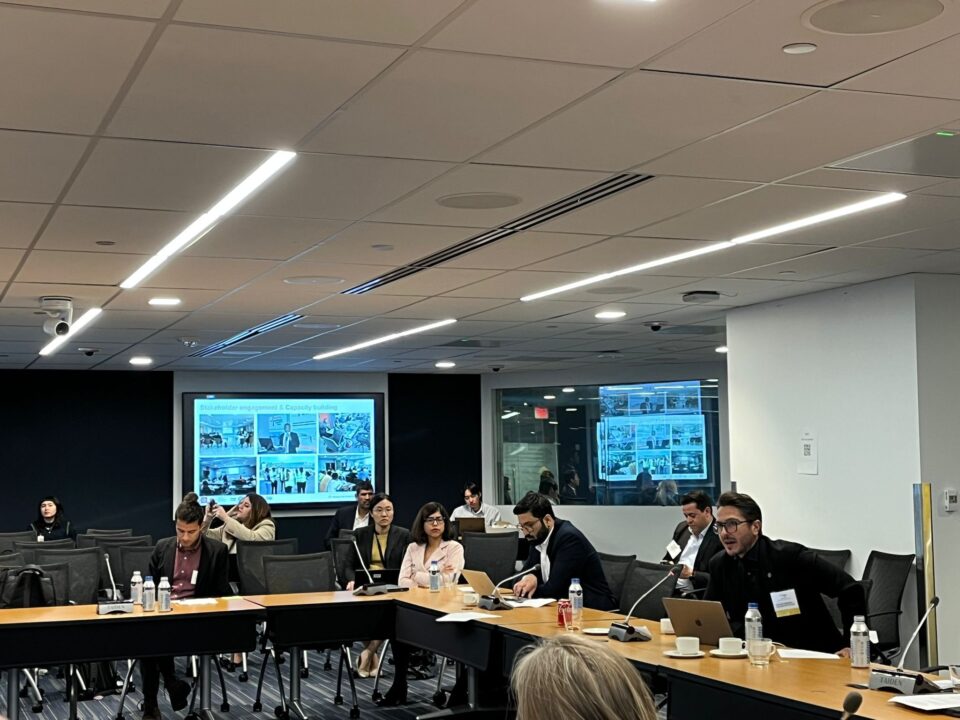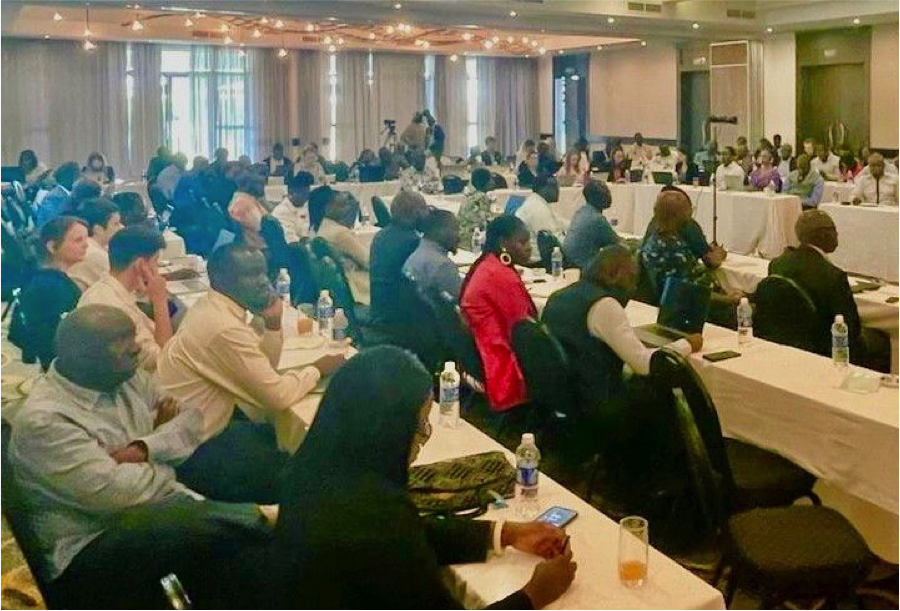
DT4A at Paratransit/Popular Transportation Day: A Transforming Transportation 2024 Side Event
30 mai 2024
No Safe Journeys for Women – New Blog from DT4A and Information Technology for Public Transport
30 mai 2024People-Centered and Safer Mobility for African Cities, a project by DT4A and Transformative Urban Mobility Initiative (TUMI), is tackling sustainable transportation challenges and improving women’s safety in African cities. A key part of this initiative is the « Map It, Change It Mapathon » held in Addis Ababa from April 22 to May 7. The mapathon was focused on gathering data on women’s experiences using the city’s light rail transit (LRT) system. The goal was to collect data, create informative maps, raise awareness of women’s mobility needs, and provide recommendations for improving public transport infrastructure and services.
Six teams comprised of local mapping community members, students, and professionals participated in the mapathon. DT4A in collaboration with TUMI and AddisMapTransit offered a series of training on data collection, analysis, mapping, and open tools.
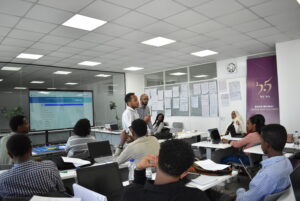
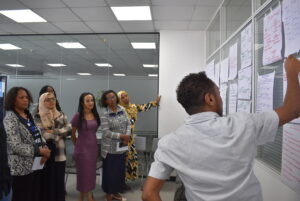
Training sessions provided by WRI and AddisMap teams on data collection techniques, tools, and methodologies
Over a week, participants conducted surveys on 37 stations and surrounding road segments collecting data on infrastructure, safety, and user experiences. The teams gathered a significant amount of data, including 65 station surveys, 271 segment surveys and 644 user surveys that yielded a comprehensive understanding of the current state of the LRT system and provided valuable input for future improvements.
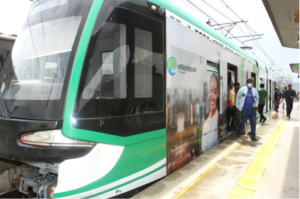
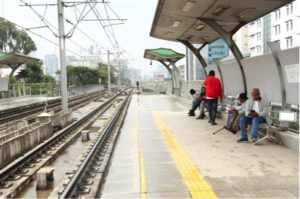
Mapathon participants collecting data at LRT stations
Following the data collection phase, the six teams –Adey, Eagle, Qelem, Sage, GeoGems, and Royal –embarked on an extensive analysis of the gathered data. Through meticulous efforts, they created informative maps and formulated valuable recommendations. During the subsequent presentations, each team showcased their remarkable findings, some even going the extra mile to develop a dedicated website (link here) to present their work. These presentations highlighted the meaningful results achieved through the teams’ unwavering dedication. The teams’ impressive commitment and creativity in analyzing the data as well as their innovative visualizations and recommendations were truly commendable.
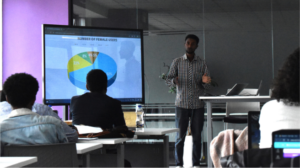
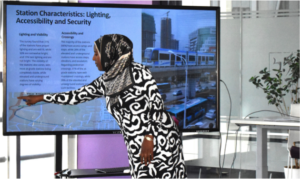
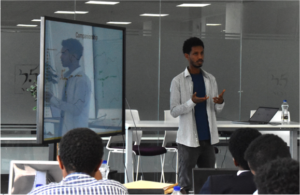
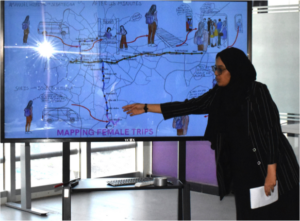
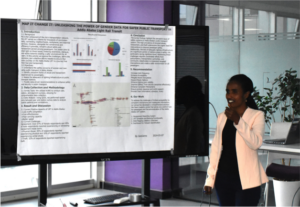
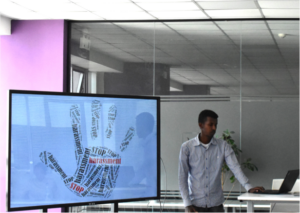
A panel of experts in urban transport, NMT, data, and research evaluated the teams’ work based on data quality, innovative analysis, actionable recommendations, and presentation effectiveness. Certificates of participation were granted to all participants acknowledging their valuable contributions. Additionally, awards were bestowed upon the teams that achieved the highest scores, namely Adey, Eagle, Sage, and Qelem.

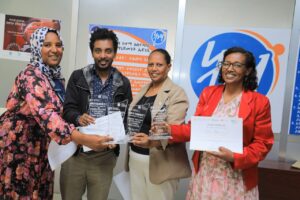
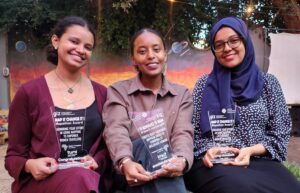

This collaborative effort highlights the potential for data-driven solutions to improve public transport safety and inclusivity for women.
Stay tuned for further updates on this project’s progress in creating safer and more gender-responsive public transport systems in Addis Ababa and beyond.
